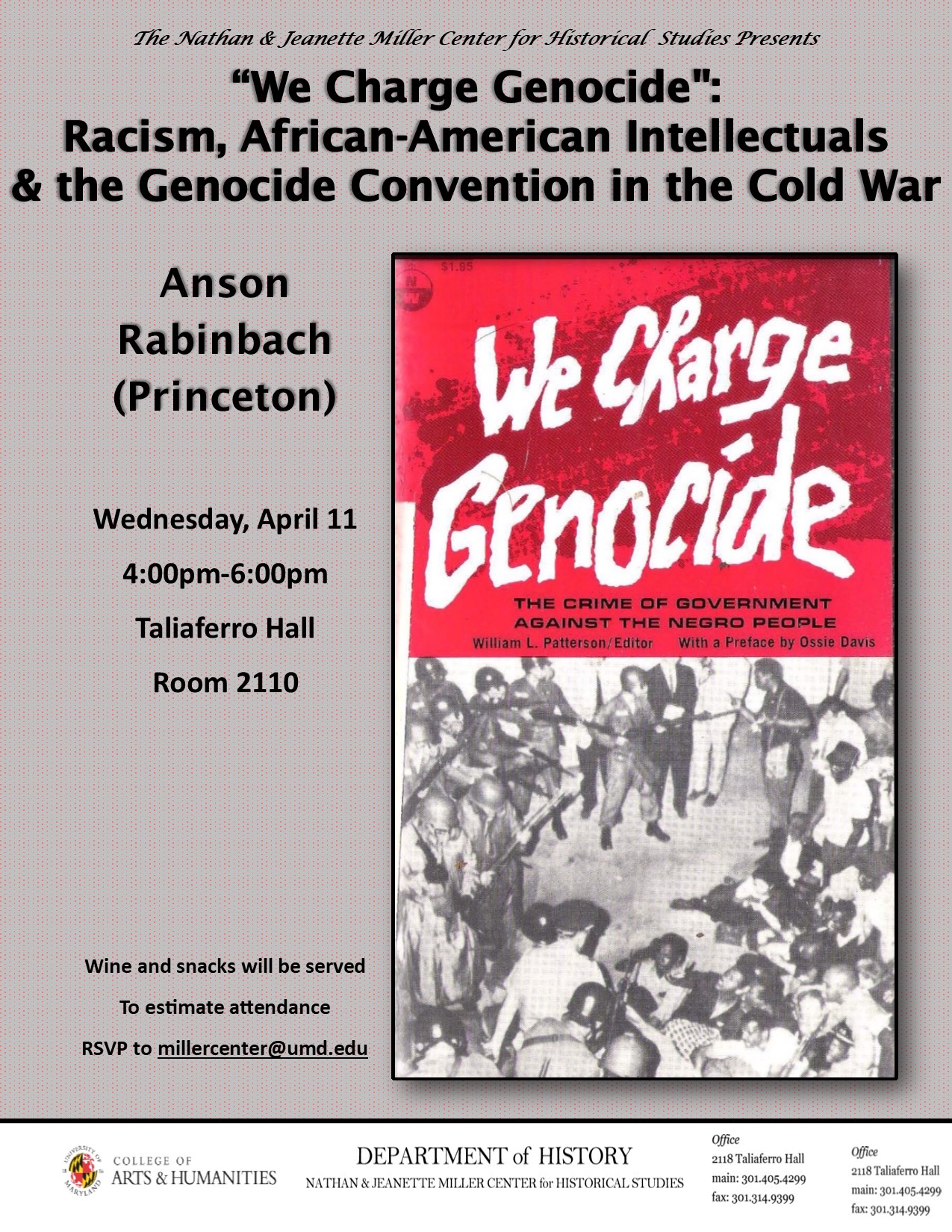"We Charge Genocide": Racism, African-American Intellectuals & the Genocide Convention in the Cold War

"We Charge Genocide": Racism, African-American Intellectuals & the Genocide Convention in the Cold War
The United Nations Genocide Convention was deeply entwined with the politics of race in early post World War II America. In 1951, a group of prominent African-American intellectuals and political activists, including W.E.B. Dubois and Paul Robeson, saw the Convention as an opportunity to address lynching and other crimes in the American South. The result was a petition entitled We Charge Genocide; The Crime of Government against the Negro People,
presented to the United Nations in December 1951. Trapped in the politics of the Cold War, the Genocide Convention became a casualty of the confrontation between the African American experience of slavery, segregation, racial violence, and its origins in the immediate postwar experience of the crimes of Nazi Germany and the Holocaust. Anson Rabinbach is Philip and Beulah Rollins Professor of History at Princeton University and is a founding editor of New German Critique. His research focuses on the cultural and intellectual history of modern Europe. Among his books are: The Human Motor: Energy, Fatigue, and the Origins of Modernity (Basic Books,1991), In the Shadow of Catastrophe: German Intellectuals Between Apocalypse and Enlightenment (University of California Press, 1996) and a documentary history of Nazi Germany, The Third Reich Sourcebook, co-edited with Sander Gilman. His most recent book, The Eclipse of the Utopias of Labor appeared with Fordham University Press in February. His current research is a conceptual history of the twentieth century, entitled “Concepts that Came in from the Cold: Total War, Totalitarianism,Genocide.” Website: https://history.princeton.edu/people/anson-rabinbach

